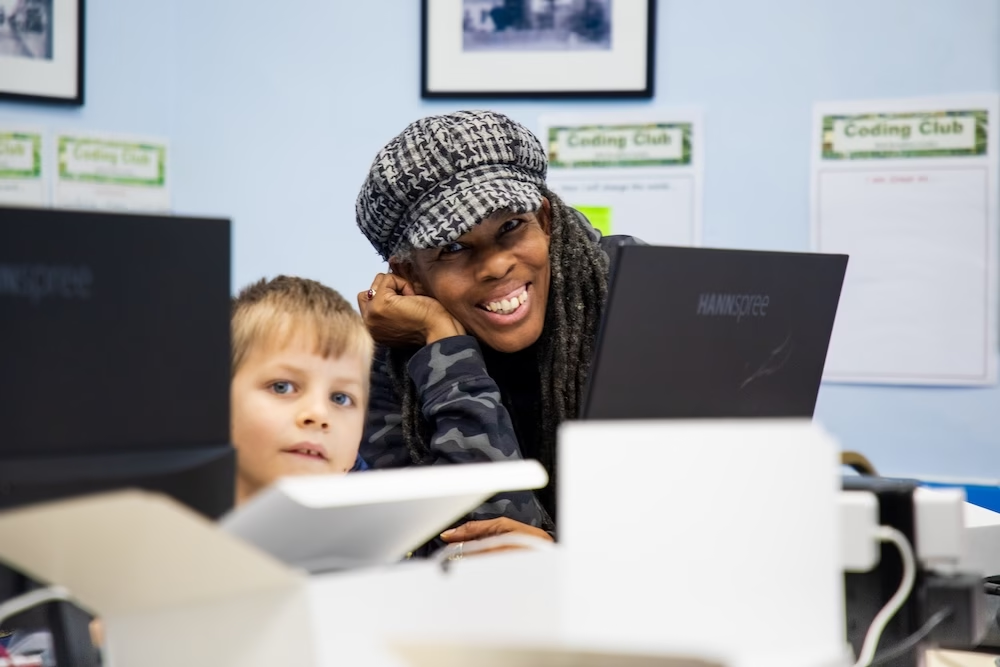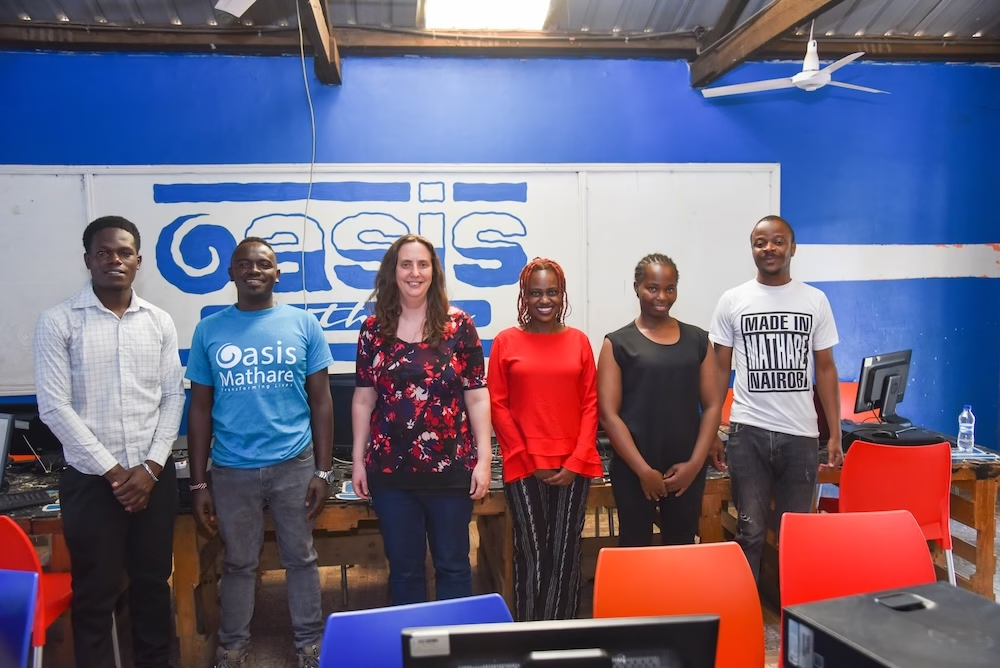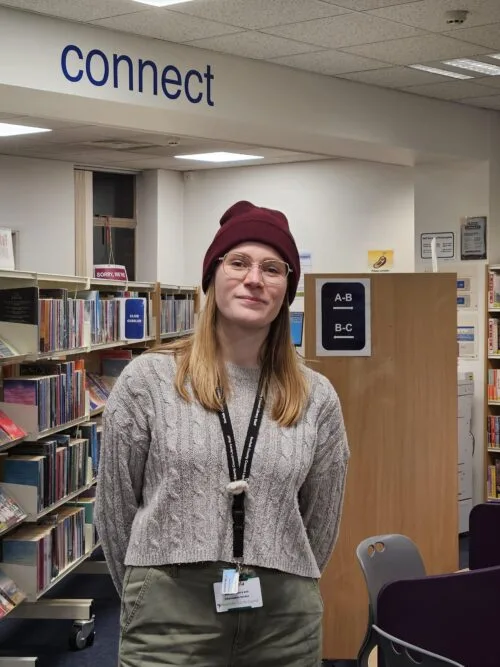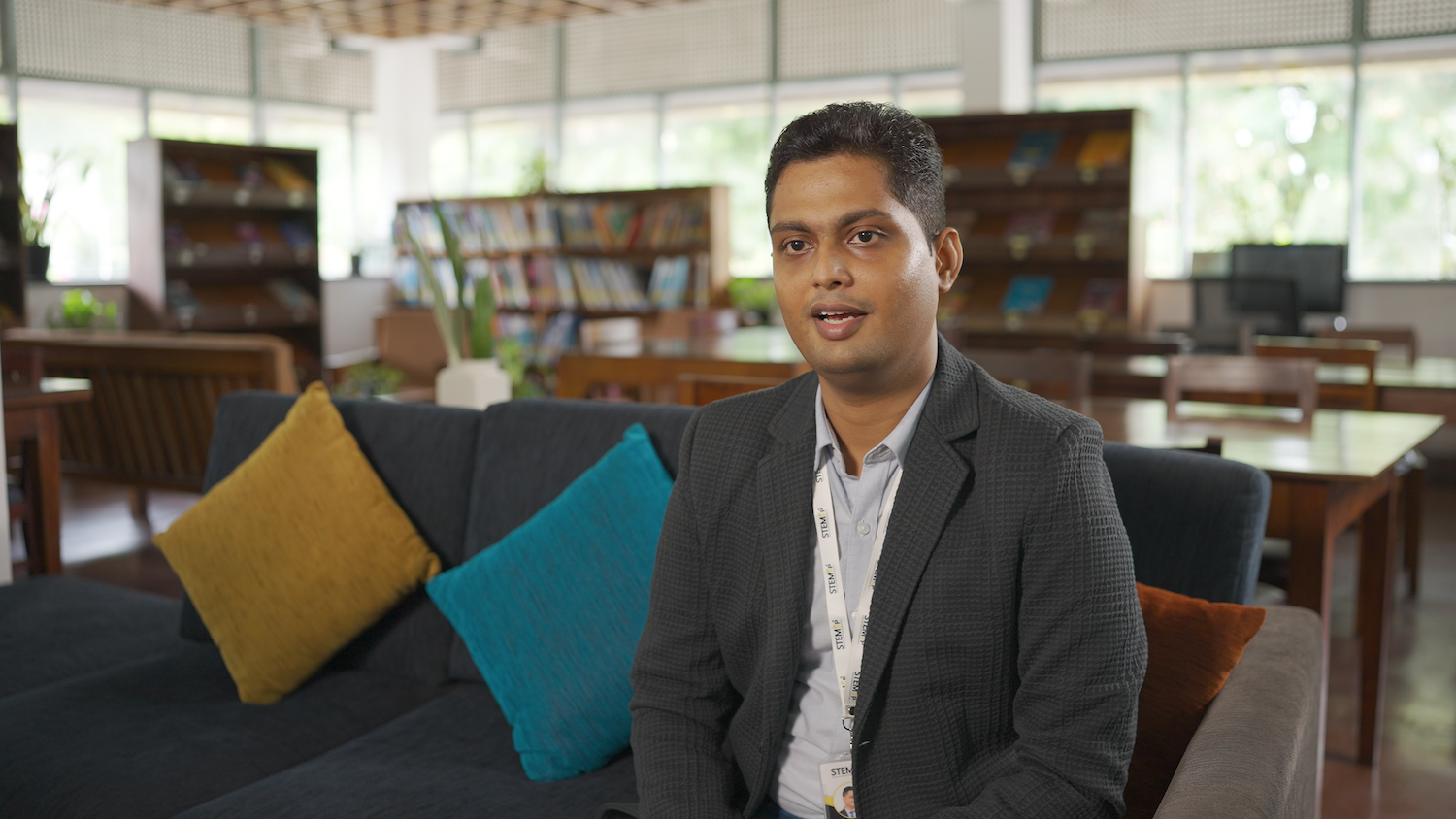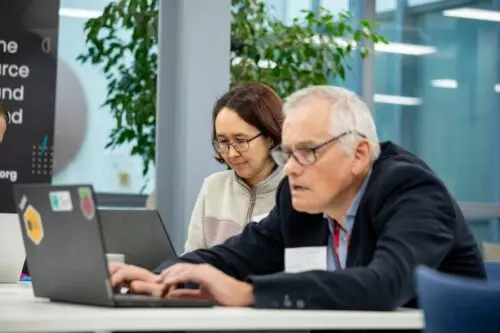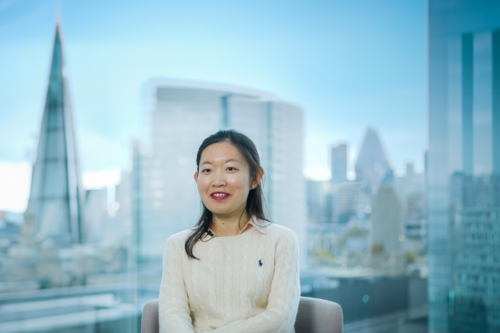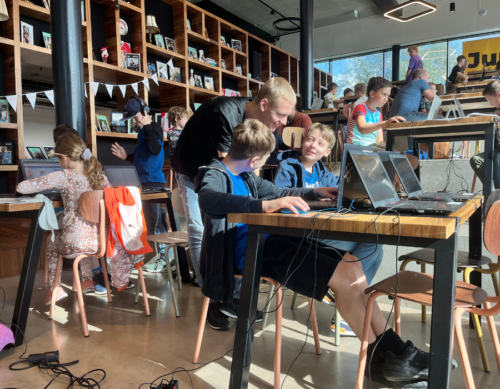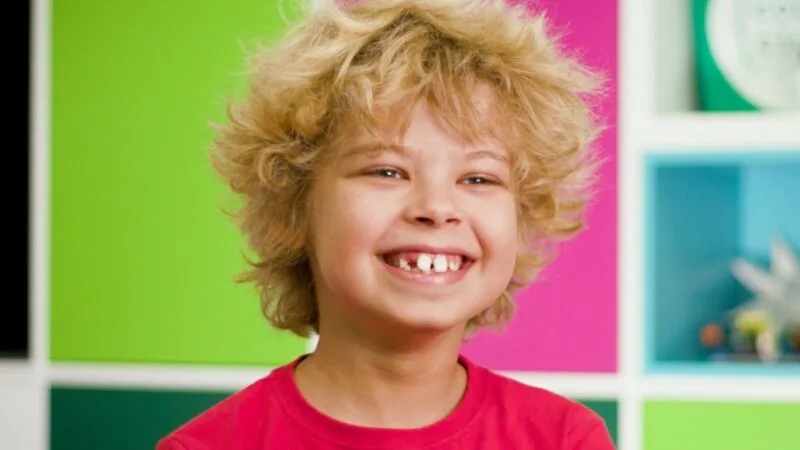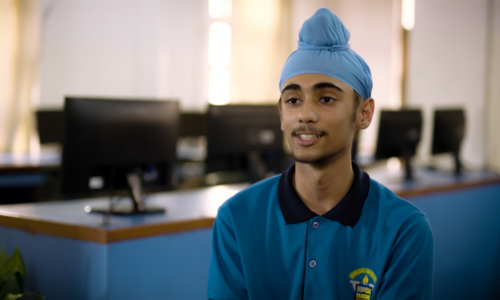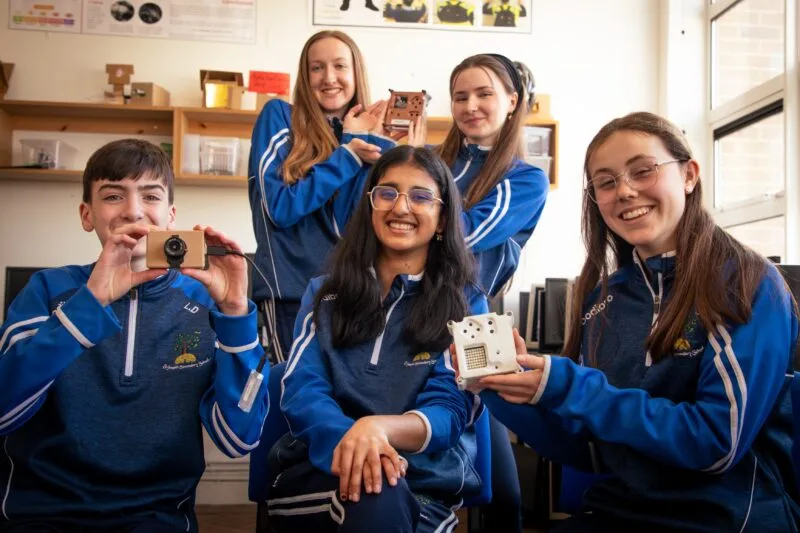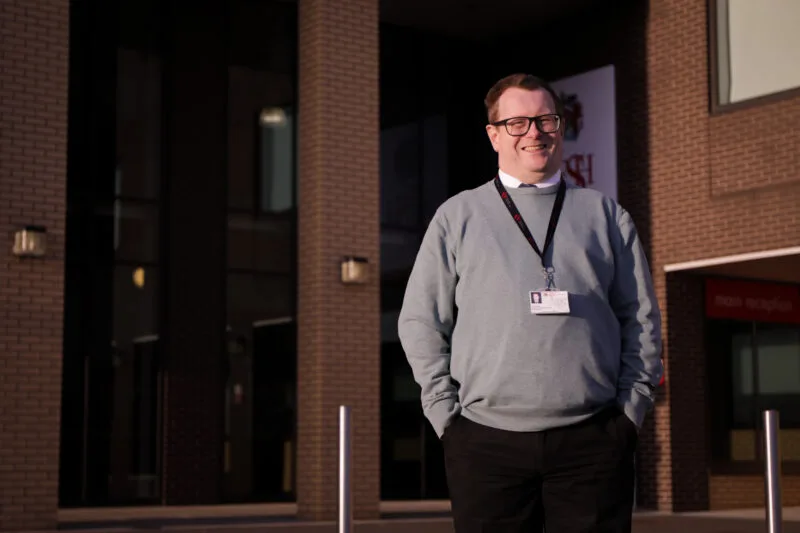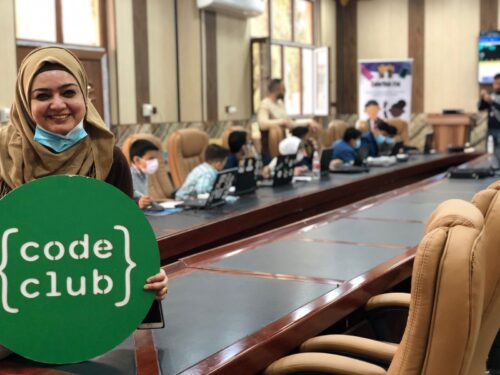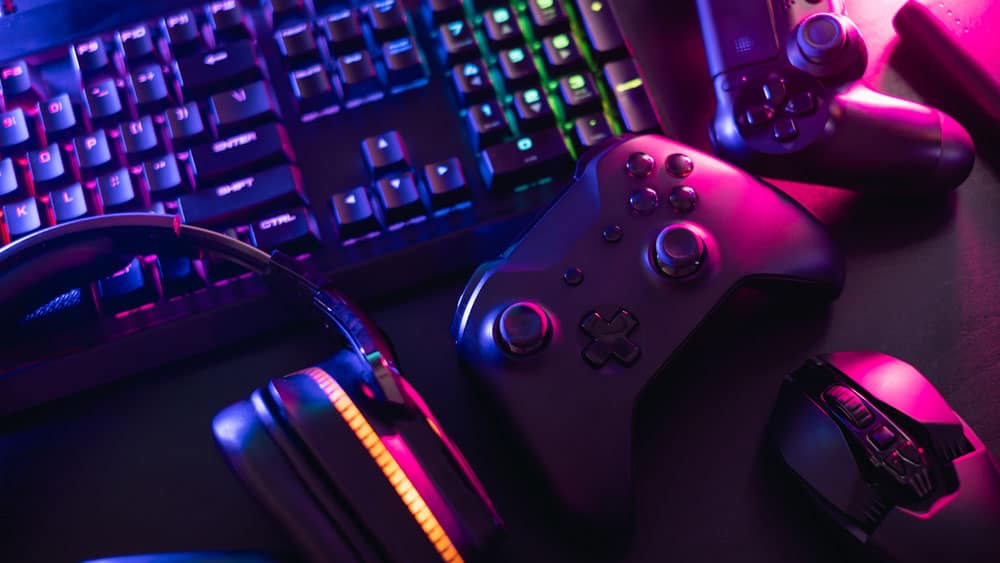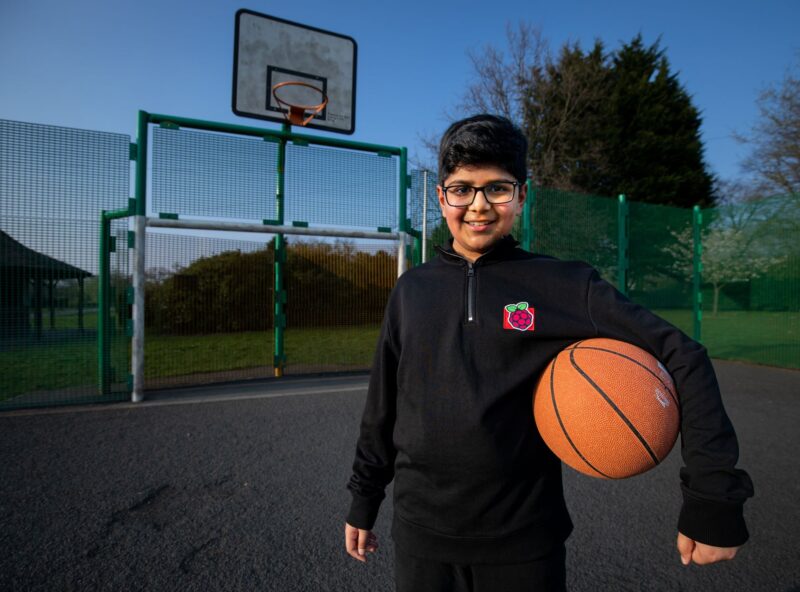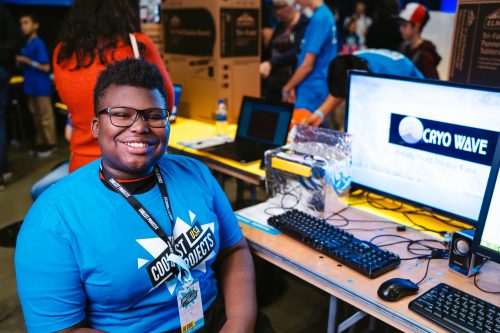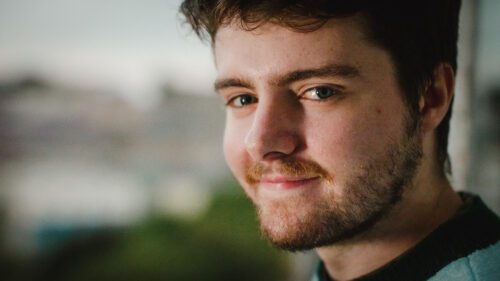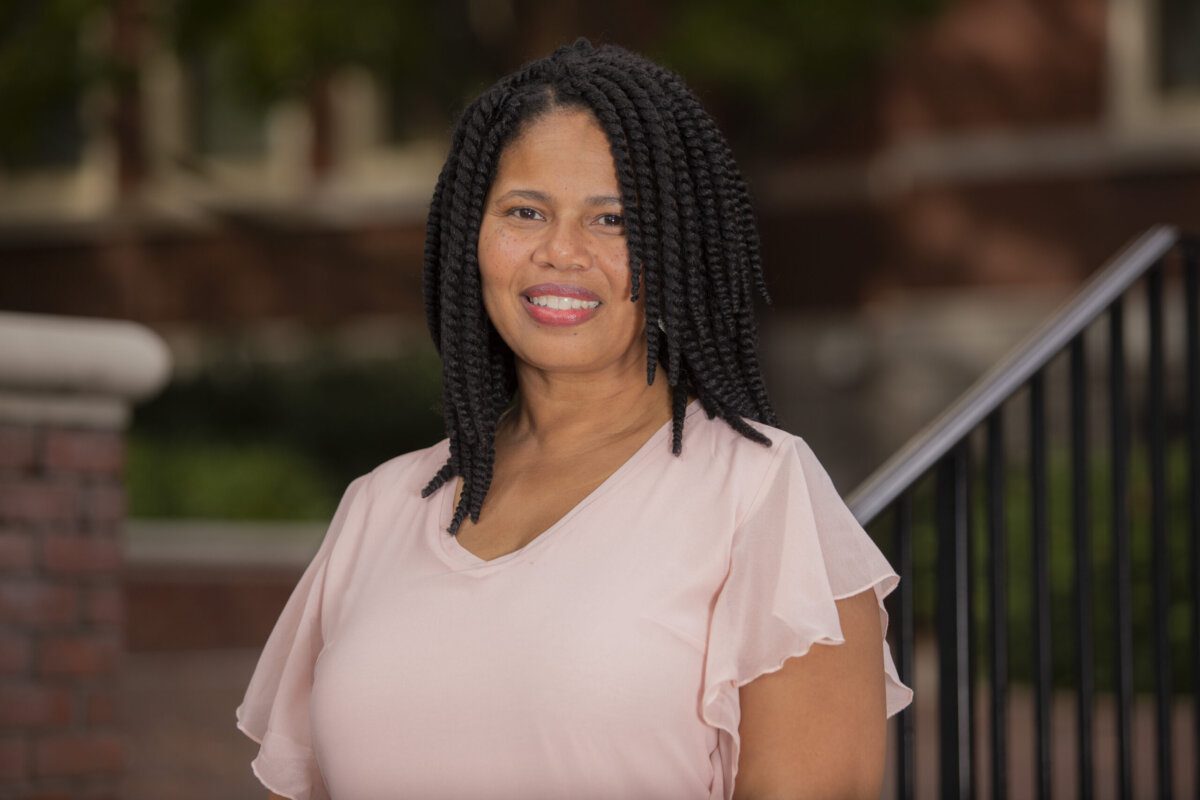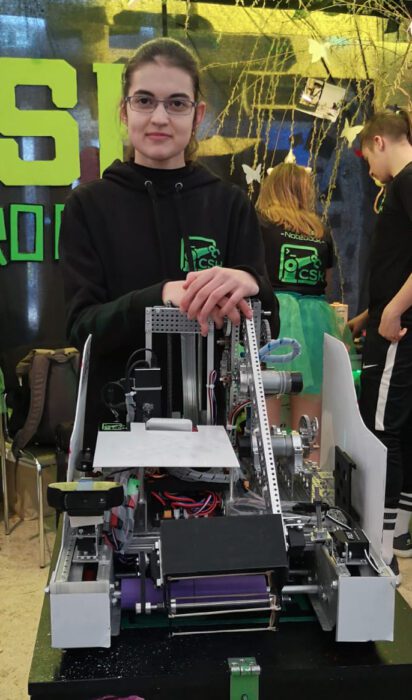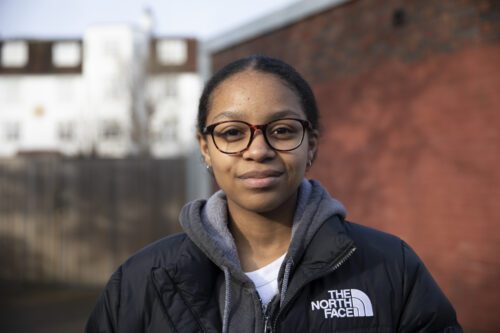Schlagwort: Community stories
-

Marie’s story: From tech beginner to Code Club mentor
Reading Time: 4 minutesWe love hearing from members of the community and sharing the stories of amazing young people, volunteers, and educators who are using their passion for technology to create positive change in the world around them. Marie is a force of nature. As the founder of Breadline London, a grassroots community project in…
-

Creating a space for connection and code: Meet Seung Woo (Tony), Canada
Reading Time: 4 minutesWe love hearing from members of the community and sharing the stories of amazing young people, volunteers, and educators who are using their passion for technology to create positive change in the world around them. Seung Woo, also known as Tony, is a 17-year-old student from Canada and the co-founder of his…
-

Giving back through Code Club: Meet Douglas
Reading Time: 5 minutesWe love hearing from members of the community and sharing the stories of amazing young people, volunteers, and educators who are using their passion for technology to create positive change in the world around them. Growing up in Mathare, one of Nairobi’s largest informal settlements, Douglas experienced first-hand what it meant to…
-

Code, karaoke, and creativity: Meet Matthew
Reading Time: 4 minutesWe love hearing from members of the community and sharing stories of amazing young people, volunteers, and educators who are using their passion for technology to create positive change in the world around them. It’s especially inspiring to hear about young people who are not only passionate about technology, but who are…
-

Community Story | Daniela, Thetford Library
Reading Time: 4 minutesWe love hearing from members of the community and sharing the stories of amazing young people, volunteers, and educators who are using their passion for technology to create positive change in the world around them. When Daniela made the transition from working in retail to joining the team at Thetford Library, she…
-

Celebrating the community: Prabhath
Reading Time: 5 minutesWe love hearing from members of the community and sharing the stories of amazing young people, volunteers, and educators who are using their passion for technology to create positive change in the world around them. Prabhath, the founder of the STEMUP Educational Foundation, began his journey into technology at an early age,…
-

Celebrating the community: Isabel
Reading Time: 5 minutesOne of our favourite things is sharing the stories of amazing young people, volunteers, and educators who are using their passion for technology to create positive change in the world around them. Recently, we had the pleasure of speaking with Isabel, a computer science teacher at Barton Peveril Sixth Form College in…
-

Celebrating the community: Yang
Reading Time: 4 minutesWe love hearing from members of the community and sharing the stories of amazing young people, volunteers, and educators who are using their passion for technology to create positive change in the world around them. In our latest story, we’re heading to London to meet Yang, a Manager in Technology Consulting at…
-

Celebrating the community: Arno & Timo
Reading Time: 3 minutesWe love hearing from members of the community and sharing the stories of amazing young people, volunteers, and educators who are using their passion for technology to create positive change in the world around them. Arno helping young coders at the CoderDojo Netherlands tenth birthday celebrations In our latest story, we’re heading…
-

Celebrating the community: Micah
Reading Time: 4 minutesWe love hearing from members of the community and sharing the stories of inspiring young people, volunteers, and educators all over the world who have a passion for technology. Micah attends a Code Club in a library in Leeds, UK. With this latest story, we’re taking you to Leeds, UK, to meet…
-

Celebrating the community: Sahibjot
Reading Time: 4 minutesIn our series of community stories, we celebrate some of the wonderful things young people and educators around the world are achieving through the power of technology. In our latest story, we’re heading to Vivek High School in Mohali, India, to meet Sahibjot, a 14-year-old coding enthusiast who has taken his hobby…
-

Celebrating the community: St Joseph’s Secondary School
Reading Time: 4 minutesIn our series of community stories, we celebrate some of the amazing young people and educators who are using their passion for technology to create positive change in the world around them. In our latest story, we’re sharing the inspiring journey of St Joseph’s Secondary School in Rush, Ireland. Over the past…
-

Celebrating the community: Spencer
Reading Time: 5 minutesWe love hearing from members of the community and how they use their passion for computing and digital making to inspire others. Our community stories series takes you on a tour of the globe to meet educators and young tech creators from the USA, Iraq, Romania, and more. For our latest story,…
-

Celebrating the community: Nadia
Reading Time: 3 minutesWe meet many young people with an astounding passion for tech, and we also meet the incredible volunteers and educators who help them find their feet in the digital world. Our series of community stories is one way we share their journeys with you. Today we’re introducing you to Nadia from Maysan,…
-

Celebrating the community: Adarsh
Reading Time: 4 minutesIn our work, we get to meet so many super inspiring young people who make things with technology. Our series of community stories is one way we share their journeys and enthusiasm for digital making with you. Today we’re introducing you to Adarsh from California, USA. Meet Adarsh [embedded content] Help us…
-

Celebrating the community: Sophie
Reading Time: 4 minutesIt’s wonderful hearing from people in the community about what learning and teaching digital making means to them and how it impacts their lives. So far, our community stories series has involved young creators, teachers, and mentors from the UK and US, India, Romania, and Ireland, who are all dedicated to making…
-

Celebrating the community: Jay
Reading Time: 3 minutesWe love being able to share how young people across the world are getting creative with technology and solving problems that matter to them. That’s why we put together a series of films that celebrate the personal stories of young tech creators. For our next story, we met up with young digital…
-

Celebrate Black history this month with code!
Reading Time: 3 minutesFor those of us living in the USA, February is Black History Month, our month-long celebration of Black history. This is an occasion to highlight the amazing accomplishments of Black Americans through time. Simply put, the possibilities are endless! Black history touches every area of our lives, and it is so important…
-

Celebrating the community: Cian
Reading Time: 3 minutesToday we bring you the sixth film in our series of inspirational community stories. It’s wonderful to share how people all across the world are getting creative with tech and solving problems that matter to them. Our next community story comes from Drogheda, Ireland, where a group of programmers set up one…
-

Celebrating the community: Yolanda
Reading Time: 3 minutesSo far in our series of community stories, we’ve collaborated with young people from the UK, India, and Romania who are getting creative with technology to change the world around them. Our next community story comes from a highly regarded community member who has been connecting young people with opportunities to learn…
-

Celebrating the community: Laura
Reading Time: 3 minutesWe love seeing all the wonderful things people are doing in the community — that’s why we’re sharing our new series of short films documenting some of the incredible journeys of community members in all corners of the globe! Laura found her peer group at a local CoderDojo and has travelled the…
-

Celebrating the community: Avye
Reading Time: 2 minutesWe’re excited to share another incredible story from the community — the second in our new series of inspirational short films that celebrate young tech creators across the world. Avye discovered robotics at her local CoderDojo and is on a mission to get more girls like her into tech. These stories showcase…
